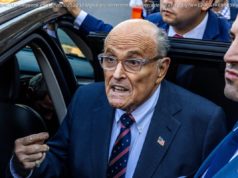United’s 2-1 triumph at Old Trafford was the perfect José Mourinho victory: one marked by an undeniable effectiveness, of system over stars.
MANCHESTER, England — José Mourinho had no choice. As Manchester United trained on Friday morning, the final session before what is traditionally the biggest domestic game of its season, a stray tackle left Paul Pogba with an open wound on his leg.
United waited as long as it could, but with only a couple of hours left until kickoff against Liverpool, the news started to seep out. Pogba would not be able to play. Mourinho, backed into a corner, had just one option: to name precisely the sort of team he has long since made his specialty, and the sort of team you suspect he prefers anyway.
It is hard to gauge, but it hardly seems outlandish to suggest that Pogba is the best outfield player in Manchester United’s squad. That he cost a then-world record £89 million ($123 million) when United brought him back to Old Trafford from Juventus in 2016 can be read as a tribute not just to his undoubted marketability, but to a combination of physical prowess and technical accomplishment that is almost without equal.
He is capable of things most others are not. He can dance around opponents, and he can drive through them, too, a ballerina and a bulldozer, depending on what the occasion demands. That United is more dangerous — more skillful, more imaginative — with the Frenchman in the team is not in question.
As Paris Saint-Germain proved amply in its elimination from the Champions League this week, though, team-building is not a straightforward equation, a matter of multiplying the talents of 11 players to find an objective, cumulative value. Pogba might be United’s most gifted player. His presence might mean Mourinho’s team is more talented. But it does not necessarily follow that he makes it more coherent.
Throughout this season, in the droning background noise that accompanies daily life at Manchester United, there has been a persistent buzz that Mourinho’s relationship with Pogba is not quite as strong as it might be. It has reached a pitch in the last couple of months, as Pogba has been treated to the full range of his manager’s tough love.
He has been substituted, and then dropped. He has seen his place come under threat from Scott McTominay, until recently a relatively unheralded graduate of the club’s academy. He has been lectured on the field and, with just the thinnest of veils, criticized off it.
Various anonymous sources on both sides have been cited in a bid to work out exactly what the problem is: a power grab on the part of Mourinho, or a shortcoming on Pogba’s? In some interpretations, the player ought to buckle down and do what is asked of him. In others, the manager needs to find a way to entice the best from his star. There is a lingering worry, stoked by those with an interest in it being stoked, that perhaps a common ground will not be found, and that at some point the player and the manager will have to part ways.
In light of what happened in Pogba’s absence against Liverpool, it is tempting to wonder if the reality is more banal. Mourinho, necessity being the mother of invention, deployed McTominay and Nemanja Matic in central midfield, a towering barrier in front of his defensive line.
Marcus Rashford, most often used as a substitute in recent weeks, started from wide on the left; Alexis Sánchez, still scratching around to find his best form after his move from Arsenal in January, played as a more orthodox No. 10. The result was a team, in shape and in inclination, that reflected the formula that has brought Mourinho such success over the last 15 years.
In the first half, as Mourinho’s team raced into a two-goal lead, it did so because Liverpool’s defense could not handle the combination of Romelu Lukaku and Rashford. That was the source of both goals: Lukaku overpowering Dejan Lovren in the air, and Rashford overcoming Trent Alexander-Arnold on the wing. It was the archetypal Mourinho attacking display: the ruthless, relentless exploitation of an identified weakness.
And then, in the second half, as Liverpool surged back, United stood firm. An Eric Bailly own goal gave the visitors hope, and three penalty claims of varying legitimacy offered a grievance, but United was largely unfazed by a Liverpool attacking trio that ranks among the Premier League’s most fearsome: Mohamed Salah was largely rendered an irrelevance; Roberto Firmino, so key to Liverpool’s attacking intentions, was starved of space and time; Sadio Mané was driven into ambushes.
“Liverpool controlled by having the ball, and United controlled by not having it,” ran Mourinho’s analysis of the second half. He had control without possession. There’s a reasonable chance Mourinho would ask for that as an epitaph.
It was the perfect Mourinho victory, a definitive Mourinho performance: not one blessed by great artistry, but marked by an undeniable effectiveness.
That it came without Pogba is significant. This may, indeed, have been the most Mourinho display United has produced since taking charge at Old Trafford almost two years ago.
How Pogba would have affected the result — for good or ill — is merely hypothetical, but that United produced the sort of display its manager craves without him cannot be dismissed.
That is not to say that United should cut its losses, or that Pogba should seek alternative employment. But it does make Mourinho’s challenge all the more pressing.
He has always been a coach of the collective, one inclined to prioritize system over stars. Victory against Liverpool showcased exactly why, a salutary reminder of what Mourinho’s teams at their best look like, of how ruthless they can be, and how indomitable. That is what Mourinho wants his Manchester United to become. It is what he wants Pogba to be part of.
The question, now, is how.
Home
United States
USA — Cinema Manchester United Tops Liverpool, Without Artistry and, Significantly, Without Pogba






